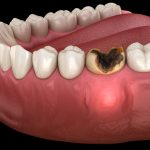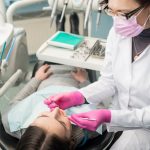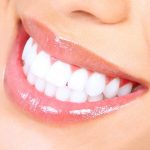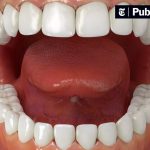Why Do Teeth Break: Common Causes and Prevention Tips

Teeth are one of the most important organs in our body, allowing us to enjoy various foods and maintain our overall health. However, just like any other part of our body, teeth can be prone to damage and breakage. This can happen due to a variety of factors such as poor oral hygiene, accidents, or even certain medical conditions. Understanding the causes of tooth breakage and taking preventive measures can help prevent this common dental problem. There are several factors that contribute to the breaking of teeth. One of the most common causes is poor oral hygiene, which can lead to the development of cavities and gum disease. These conditions weaken the structure of the tooth, making it more prone to breakage. Another common cause is trauma to the face, such as from a fall or sports injury. This can cause a tooth to crack or break, especially if it has already been weakened by decay or other dental problems. Additionally, certain medical conditions, such as osteoporosis or bruxism (teeth grinding), can also increase the risk of tooth breakage.
Teeth breakage is a common dental problem that occurs when a tooth cracks, chips, or fractures. This can be caused by a variety of factors such as trauma to the mouth, biting down on hard objects, tooth decay, or weakened enamel. Other factors that can contribute to tooth breakage include poor dental hygiene, grinding or clenching of teeth, and aging. When a tooth breaks, it can cause pain, sensitivity, and difficulty eating or speaking. Treatment options for tooth breakage depend on the severity of the damage and may include bonding, crowns, veneers, or root canals. Preventative measures such as regular dental check-ups, wearing a mouthguard during physical activities, and avoiding hard or sticky foods can also help to reduce the risk of tooth breakage.
Maintaining healthy teeth is crucial for overall health and well-being. Teeth play a vital role in the digestion process, as they are responsible for breaking down food into smaller particles for easy absorption. Healthy teeth also contribute to clear speech and a confident smile. Neglecting oral hygiene can lead to tooth decay, gum disease, and even tooth loss, which can cause difficulty eating, speaking, and a lack of self-esteem. Regular dental check-ups, proper brushing and flossing, and a balanced diet can help prevent dental problems and keep teeth healthy for a lifetime.
Common Causes of Teeth Breakage
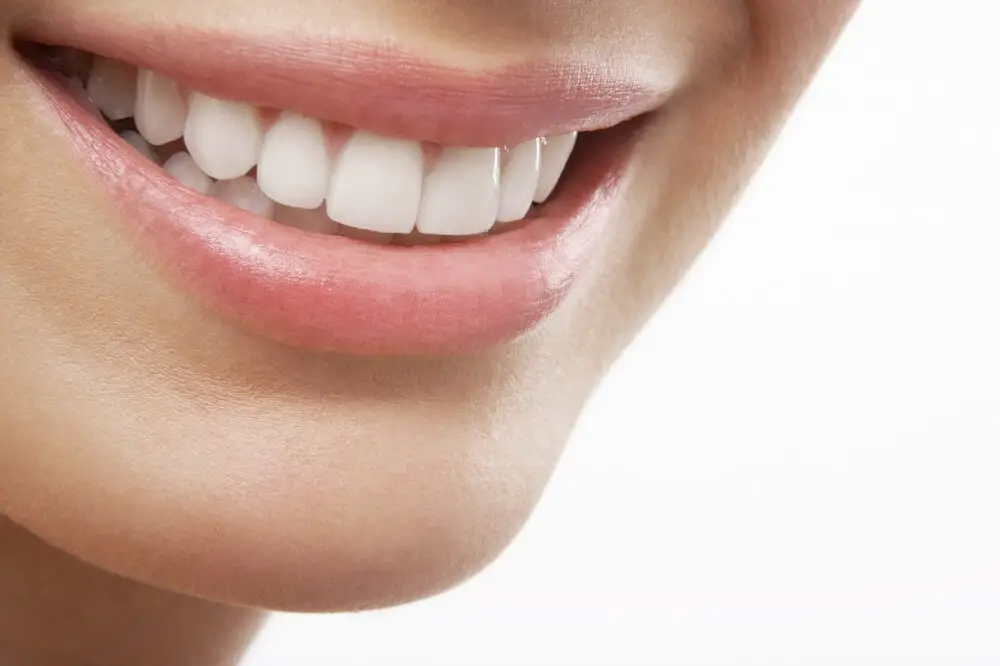
Teeth breakage is a common dental problem that can cause immense pain and discomfort. There are various reasons why teeth can break, with some being more prevalent than others. One of the most common causes of teeth breakage is tooth decay. When tooth decay is left untreated, it can weaken the tooth structure and cause it to become brittle, making it more prone to cracking or breaking. Eating hard foods, biting on hard objects, or grinding teeth can also cause teeth to break. These habits can put excessive pressure on teeth and cause them to weaken over time. Trauma or injuries to the mouth can also lead to teeth breakage. Accidents or falls can cause teeth to chip, crack, or break, and sports-related injuries can also lead to teeth breakage. Another common cause of teeth breakage is poor dental hygiene. Failing to brush and floss teeth regularly can lead to the accumulation of plaque and tartar, which can cause tooth decay and weaken the tooth structure. Additionally, consuming sugary foods and drinks can increase the risk of tooth decay and breakage. Other factors that can cause teeth breakage include aging, as teeth become more prone to breakage as people get older, and certain medical conditions such as osteoporosis, which can lead to weakened bones, including teeth. To prevent teeth breakage, it is essential to maintain good oral hygiene, avoid biting on hard objects, and wear a mouthguard during sports activities.
Biting down on hard objects can be a common cause of teeth breakage and damage, especially if done repeatedly. This habit can include chewing on ice, pens, pencils, or even using teeth to crack open nuts or other hard foods. The force exerted on the teeth when biting down on hard objects can cause fractures, chips, or even complete breaks in the teeth. It is important to avoid this habit and use appropriate tools to open and cut hard foods. Additionally, wearing a mouthguard during sports or physical activities can help protect teeth from trauma and potential breakage.
Physical trauma or injury is one of the most common causes of broken teeth. A blow to the mouth, a fall, or an accident can all result in chipped, cracked, or broken teeth. This can be extremely painful and can also lead to further complications such as infection or nerve damage. Prevention is key when it comes to avoiding physical trauma or injury to the teeth. Wearing a mouthguard during sports or other activities that have a high risk of impact can greatly reduce the chances of broken teeth. It is also important to practice good dental hygiene, as weakened teeth are more susceptible to damage. In the event of a broken tooth, seeking prompt dental treatment can help to prevent further damage and ensure the best possible outcome for the affected tooth.
Grinding teeth at night or bruxism is a common cause of teeth breakage. This condition occurs when a person clenches or grinds their teeth unconsciously during sleep. Bruxism can lead to tooth wear and tear, chips, fractures, and even jaw disorders. It can be caused by stress, anxiety, or an abnormal bite. To prevent teeth breakage due to bruxism, one can try stress-reduction techniques, wear a nightguard, or undergo dental treatments to correct the bite. Early diagnosis and treatment can save the teeth from further damage and prevent the need for extensive dental work in the future.
Acid reflux, also known as gastroesophageal reflux disease (GERD), is a condition where stomach acid flows back up into the esophagus. This can cause a burning sensation in the chest, also known as heartburn, and can also lead to other gastrointestinal issues such as bloating, nausea, and difficulty swallowing. Prolonged exposure to stomach acid can also damage tooth enamel, leading to tooth sensitivity and decay. To prevent acid reflux and its associated dental problems, it is important to maintain a healthy diet, avoid trigger foods such as spicy or acidic foods, and seek medical treatment if symptoms persist.
Signs and Symptoms of Teeth Breakage
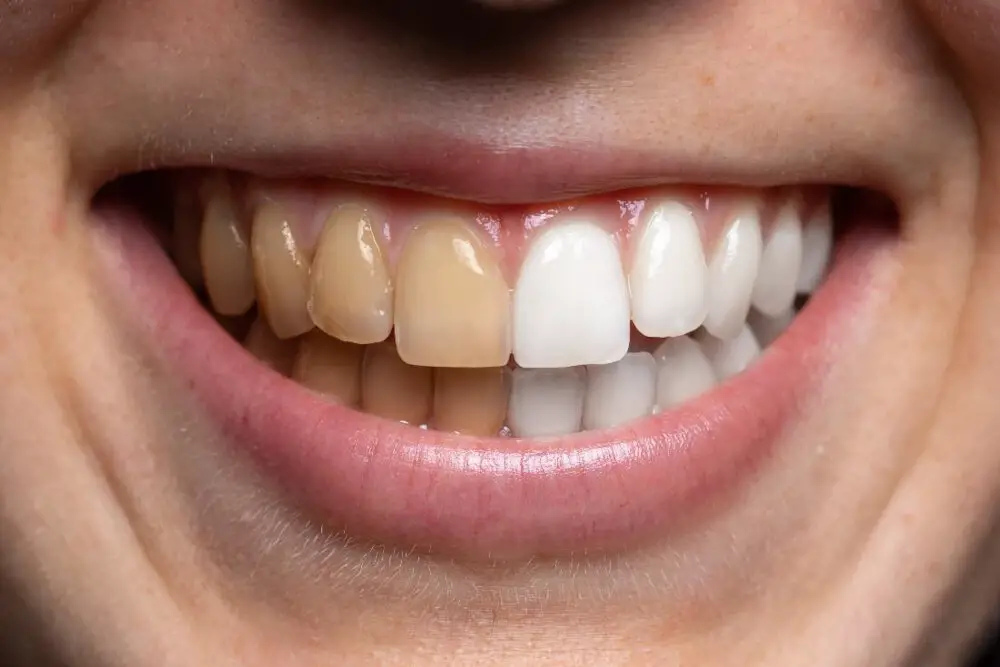
Teeth breakage is a common dental problem that can cause discomfort, pain, and affect the overall oral health of an individual. There are various signs and symptoms that one can experience if they have a broken tooth. One of the most common symptoms is pain or sensitivity in the affected tooth. The pain can vary from mild to severe, depending on the extent of the breakage. Additionally, one may also experience pain while biting or chewing food, or when the affected tooth comes in contact with hot or cold temperatures. Another sign of teeth breakage is visible cracks or chips on the surface of the tooth. In some cases, the breakage may be so severe that a part of the tooth may break off completely. This can cause a sharp edge on the tooth, which can irritate the tongue or cheeks. Furthermore, if the breakage is close to the gum line, it can also cause gum irritation and bleeding. If you notice any of these signs or symptoms, it is essential to visit a dentist as soon as possible to prevent further damage to the tooth and surrounding tissue.
Tooth sensitivity is a common dental issue that affects millions of people worldwide. It is characterized by a sharp pain or discomfort in the teeth, especially when exposed to hot or cold temperatures, sweet or acidic foods, or even cold air. Tooth sensitivity can be caused by a variety of factors, including tooth decay, gum recession, worn enamel, cracked or broken teeth, and aggressive brushing or teeth grinding. To prevent tooth sensitivity, it is essential to practice good oral hygiene, avoid acidic and sugary foods, use a soft-bristled toothbrush, and wear a mouthguard if you grind your teeth at night. If you experience tooth sensitivity, it is recommended to visit your dentist for a proper diagnosis and treatment plan.
Experiencing pain when biting or chewing food can be a sign of several dental problems, and ignoring it can lead to more severe damage. Tooth decay, cracked teeth, or gum disease are the most common causes of this discomfort. Tooth decay occurs when bacteria in the mouth produce acid, which erodes the enamel and exposes the nerves and roots of the teeth. Cracked teeth can result from excessive grinding, clenching, or biting hard objects, and can cause pain when chewing or biting. Gum disease is the inflammation of the gum tissues and can cause sensitivity and pain when eating. Regular dental check-ups and good oral hygiene practices can help prevent and treat these problems, and avoid further damage to the teeth.
Visible cracks or chips on teeth are a common dental problem that can occur due to various reasons. One of the most common reasons is trauma or injury to the mouth, which can cause the tooth to crack or chip. This could happen due to sports injuries, accidents, or falls. Another reason could be due to tooth decay, which weakens the tooth and makes it more susceptible to breaking. Other factors that could contribute to visible cracks or chips on teeth include grinding or clenching teeth, chewing on hard objects, or having a diet high in sugary or acidic foods. It is important to address this issue as soon as possible as it can lead to further dental problems such as infection, sensitivity, and even tooth loss.
Discoloration or dark spots on teeth can occur due to various reasons such as aging, tobacco use, poor oral hygiene, and certain foods and drinks. The discoloration may be superficial and can be removed through professional cleaning, but in some cases, it may penetrate the enamel and require more advanced treatments such as bonding or veneers. It is essential to maintain good oral hygiene by brushing twice a day, flossing, and visiting the dentist regularly to prevent discoloration and other dental problems. Additionally, avoiding tobacco use and limiting the consumption of foods and drinks that stain teeth can also help maintain a bright and healthy smile.
Prevention Tips to Avoid Teeth Breakage
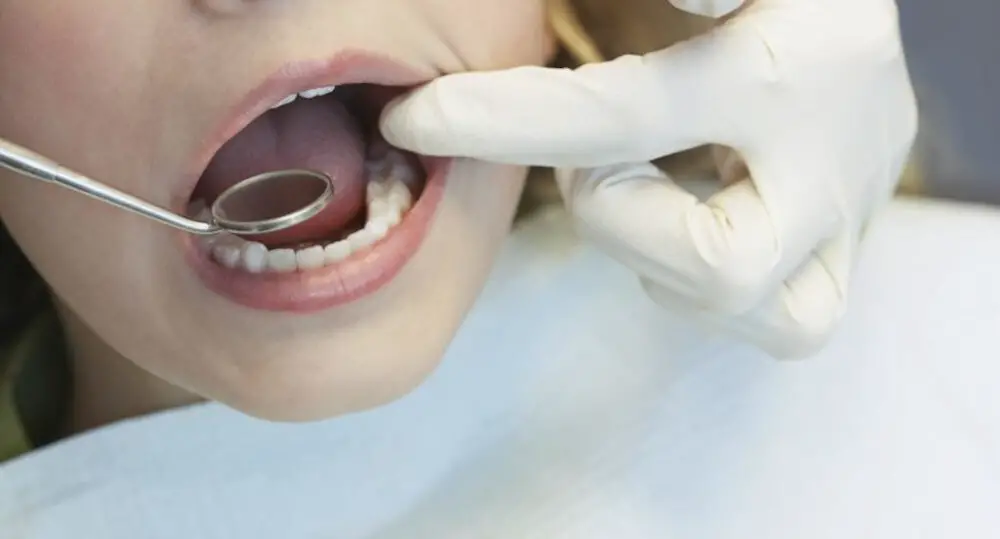
Teeth breakage is a common dental problem, and it can happen to anyone regardless of age, gender, or lifestyle. The good news is that there are several prevention tips that can help you avoid this dental issue. One of the most important things to do is to avoid chewing hard foods such as ice, popcorn kernels, and hard candy. These foods can easily crack or break your teeth, leading to discomfort and pain in your mouth. Instead, opt for softer foods like yogurt, bananas, and cooked vegetables that are gentle on your teeth. Another prevention tip to avoid teeth breakage is to wear a mouthguard if you’re involved in sports or other physical activities. A mouthguard can protect your teeth from injury by absorbing the impact of a blow or fall to your face. Additionally, you should avoid using your teeth as tools to open bottles or cut tape. This can cause your teeth to chip or break, leading to the need for costly dental treatment. Finally, make sure you visit your dentist regularly for check-ups and cleanings. Your dentist can identify any potential issues with your teeth and gums before they become serious problems that require extensive treatment. By following these simple prevention tips, you can keep your teeth healthy and strong for years to come.
One of the most common causes of teeth breakage is biting down on hard objects. Teeth are designed to handle the pressure of chewing food, but they are not meant to withstand the force of biting on hard items such as pens, ice, or popcorn kernels. When you bite down on these items, you are putting a lot of stress on your teeth, which can cause them to crack or break. To prevent this from happening, it’s important to avoid biting down on hard objects. Instead, opt for softer foods, such as fruit or cooked vegetables, and use your teeth only for their intended purpose – chewing and grinding food. Additionally, it’s important to visit your dentist regularly, as they can identify any potential issues before they become more serious.
Wearing a mouthguard during physical activities is an essential preventive measure to protect your teeth and oral health. Whether you are playing contact sports or participating in recreational activities, a mouthguard can absorb the shock from impacts and reduce the risk of dental injuries. Mouthguards are available in various types, including boil-and-bite, custom-fit, and stock mouthguards. While boil-and-bite and stock mouthguards are readily available and affordable, they may not provide the best protection or comfort. Custom-fit mouthguards, on the other hand, are tailored to fit your teeth and mouth, ensuring maximum protection and comfort. Investing in a high-quality mouthguard can save you from costly and painful dental treatments in the future.
One of the most common dental issues that can lead to tooth breakage is bruxism, or teeth grinding. This condition can cause significant damage to teeth over time, leading to fractures, chips, and even full breaks in the tooth structure. To prevent this from happening, it is important to address the underlying cause of bruxism and treat it accordingly. This may involve wearing a custom mouthguard to protect teeth while sleeping, practicing stress-reduction techniques to alleviate tension, or even seeking dental or medical intervention to address any underlying medical issues that may be contributing to the problem. By taking proactive steps to prevent and treat bruxism, individuals can significantly reduce their risk of experiencing tooth breakage and other related dental issues.
Practicing good oral hygiene habits is crucial for maintaining healthy teeth and preventing them from breaking. Brushing your teeth twice a day, flossing daily, and rinsing with mouthwash can help remove plaque and bacteria that can weaken teeth. Additionally, avoiding sugary foods and drinks and limiting acidic foods can help prevent tooth decay and erosion. Regular visits to the dentist for cleanings and check-ups can also catch any potential problems before they become severe. By taking care of your teeth and gums, you can prevent them from breaking and ensure a lifetime of healthy smiles.
Treatment Options for Teeth Breakage
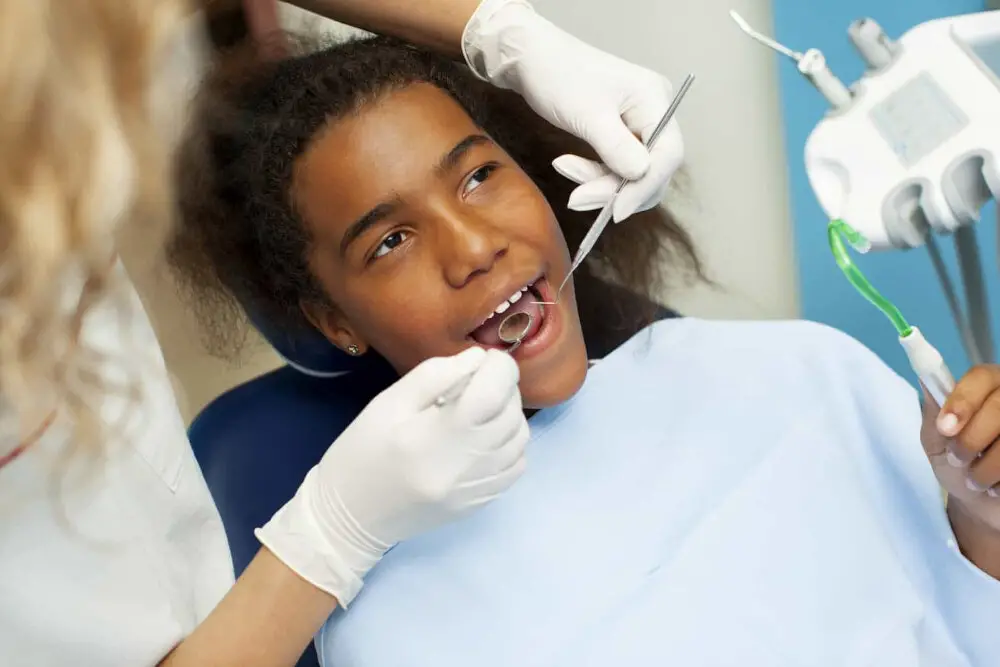
Teeth breakage is a common dental problem that can occur due to various reasons, including injuries, decay, or biting on hard objects. When teeth break, they can cause excruciating pain and discomfort, making it difficult to eat or speak. Fortunately, there are several treatment options available to restore the broken teeth and alleviate the pain. One of the most common treatment options for teeth breakage is dental bonding. This procedure involves the use of a tooth-colored resin material that is applied to the broken tooth and then hardened using a special light. The bonding material is carefully sculpted to match the shape and color of the surrounding teeth, restoring the tooth’s natural appearance and function. Dental bonding is a relatively simple and affordable procedure that can be completed in just one visit to the dentist’s office. However, bonding material is not as strong as natural teeth, and it may need to be replaced every few years. Another treatment option for teeth breakage is a dental crown. A crown is a cap that is placed over the broken tooth, restoring its shape, size, and strength. Crowns can be made from several materials, including porcelain, metal, or a combination of both. Porcelain crowns are the most popular choice as they closely resemble the natural teeth’ color and translucency. However, the process of placing a crown is more invasive than bonding, requiring the removal of some of the tooth’s structure. Crowns are a more durable and long-lasting solution for teeth breakage, but they are also more expensive than bonding.
Dental bonding or filling is a common solution for minor cracks or chips in teeth caused by various reasons discussed in this article. This procedure involves applying a tooth-colored resin material to the affected area, which is then hardened with a special light. This can improve the appearance of the tooth and prevent further damage. Bonding is a quick and painless procedure that can be completed in one visit to your dentist. However, it is important to note that bonding is not as durable as other options such as veneers or crowns and may require touch-ups or replacement over time. Your dentist can advise you on the best course of action to restore your smile and protect your teeth from further damage.
When it comes to restoring broken or damaged teeth, dental crowns and veneers are popular options for more extensive damage. Dental crowns are tooth-shaped caps that are placed over a damaged tooth to improve its appearance, strength, and durability. They are often recommended for teeth that have undergone root canal treatment, have extensive decay, or have been severely damaged due to trauma. On the other hand, veneers are thin, custom-made shells that are cemented to the front surface of a tooth to improve its appearance. They are often used to treat cosmetic issues such as chipped, stained, or misshapen teeth. Both options provide effective solutions for restoring damaged teeth and can help improve the overall health and appearance of your smile.
Root canal treatment is a procedure that is often recommended for severe cases of tooth breakage. When a tooth is severely damaged or decayed, the nerve and pulp inside the tooth can become infected, causing extreme pain and discomfort. A root canal involves removing the infected tissue from inside the tooth and filling the tooth with a special material to prevent further damage. This treatment can help save the tooth and prevent the need for extraction. While root canals have a reputation for being painful, modern techniques and anesthesia make the procedure relatively painless. It is important to seek prompt treatment for severe cases of tooth breakage to prevent further complications and preserve your overall dental health.
Tooth extraction should always be the last resort when it comes to treating a broken tooth. This is because losing a tooth can cause a range of problems, including difficulty eating, speaking, and even social embarrassment. However, in some cases, extraction is necessary to prevent further damage or infection. For example, if a tooth is severely broken and cannot be repaired with a crown or filling, it may need to be extracted. Additionally, if a broken tooth has become infected and cannot be treated with antibiotics, extraction may be the only option. It’s important to always consult with a dentist to determine the best course of action for a broken tooth, as each case is unique.
The article \Why Do Teeth Break Common Causes and Prevention Tips\ highlights the common reasons that lead to teeth breakage and measures to prevent it. The article emphasizes that teeth breakage occurs due to various reasons such as biting hard objects, tooth decay, teeth grinding, and injuries. The article also focuses on the importance of proper oral hygiene and regular dental check-ups to prevent tooth decay and gum diseases. Additionally, the author suggests that avoiding hard foods, using mouthguards during sports, and avoiding certain habits like biting nails can help prevent teeth breakage. Overall, the article serves as a useful guide for individuals to understand the causes and prevention of teeth breakage and maintain good oral health.
Seeking professional dental care is of utmost importance to maintain good oral health. Regular dental check-ups can help identify any dental issues at an early stage, preventing them from worsening. A professional dentist can provide a comprehensive dental exam, including X-rays, to diagnose any problems with the teeth and gums. They can provide professional cleaning, removing any plaque or tartar buildup, which can lead to tooth decay and gum disease. Moreover, a dentist can provide preventive measures such as dental sealants and fluoride treatments to protect the teeth from decay. Therefore, it is crucial to prioritize regular dental visits to avoid dental problems and maintain excellent oral health.
In conclusion, maintaining healthy teeth is crucial for overall oral health and well-being. By practicing good oral hygiene habits such as regularly brushing and flossing, avoiding sugary and acidic foods and drinks, and visiting the dentist regularly, individuals can prevent common causes of tooth breakage. By staying proactive and taking care of their teeth, individuals can avoid the pain and inconvenience of broken teeth and maintain a beautiful, healthy smile for years to come. It is important to remember that prevention is key when it comes to maintaining healthy teeth, and making small changes to daily habits can have a big impact on long-term oral health.
Conclusion
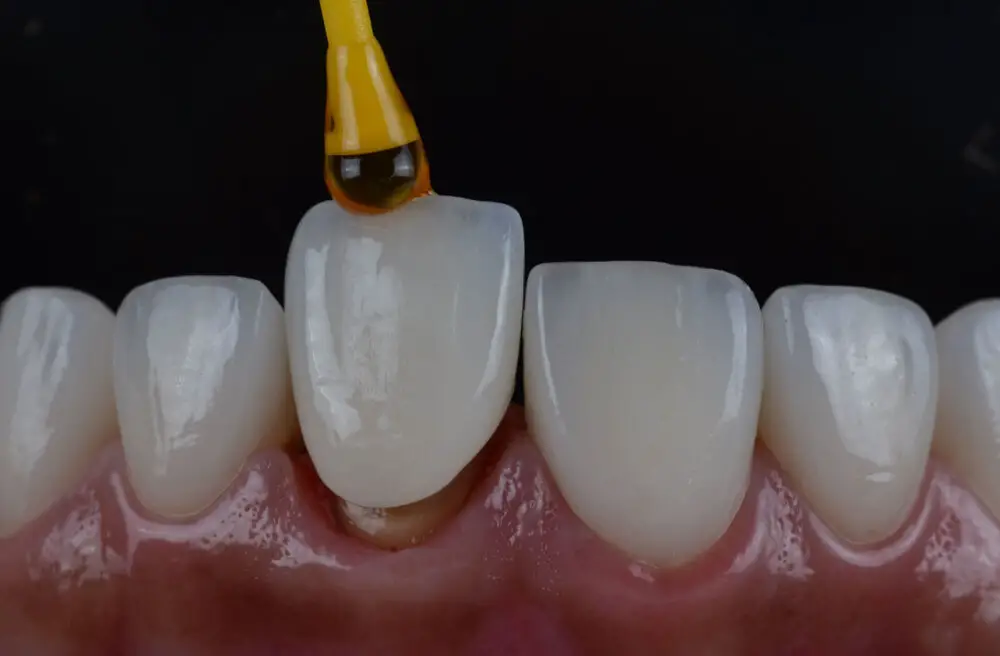
In conclusion, teeth breaking can be caused by a variety of factors such as trauma, decay, grinding, or aging. However, there are several preventive measures that can help preserve the strength and integrity of your teeth. Maintaining good oral hygiene habits, wearing mouthguards during physical activities, avoiding hard foods and excessive grinding, and regular dental check-ups can all contribute to preventing tooth breakage. Remember, healthy teeth are essential for a beautiful smile, proper nutrition, and overall well-being. Therefore, it’s crucial to prioritize dental health and take necessary precautions to prevent teeth from breaking.
